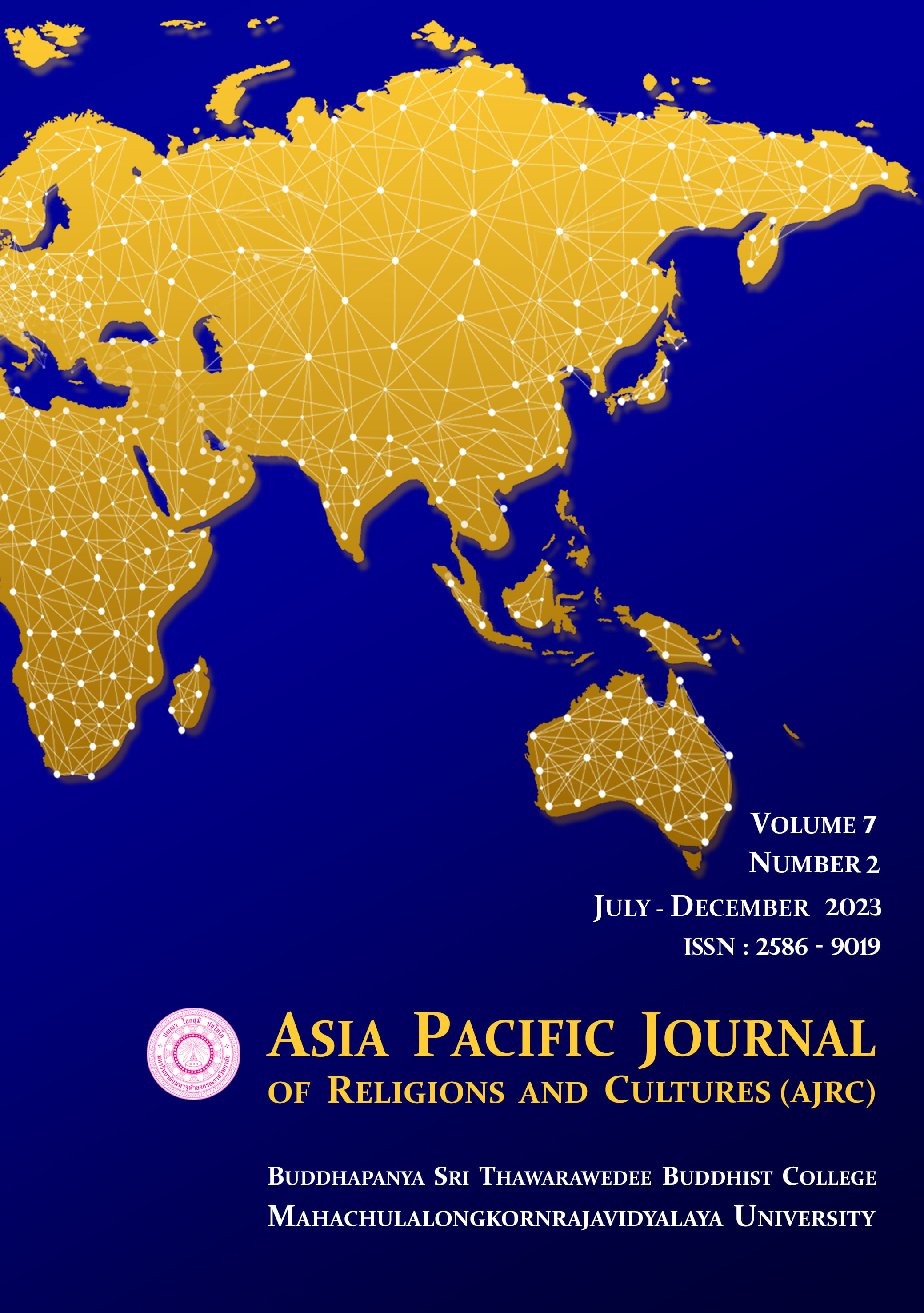THE INFLUENCE MECHANISM OF INNOVATION AND ENTREPRENEURIAL EDUCATION ON STUDENTS' ENTREPRENEURIAL INTENTION IN PRIVATE COLLEGES IN GUIZHOU PROVINCE, CHINA
Main Article Content
Abstract
The research topic “The Influence Mechanism of Innovation and Entrepreneurial Education on Students' Entrepreneurial Intention in Private Colleges in Guizhou Province, China” This study examined the dimensions of Innovation and Entrepreneurial Education and the influence of entrepreneurial self-efficacy on college students' entrepreneurial intention, as well as the mediating role of entrepreneurial self-efficacy in the impact of innovation and entrepreneurial education on college students' entrepreneurial intention. The study also explored the moderating role of the internal-external locus of control on the relationship between entrepreneurial self-efficacy and entrepreneurial intention. Both qualitative and quantitative research methods were used, and a survey of 400 valid questionnaires was collected. Empirical analysis and hypothesis testing showed that entrepreneurial theory education and education support had a significant positive impact on the formation of entrepreneurial intention, while entrepreneurial practice education did not. Entrepreneurial self-efficacy played a mediating role in theory education and education support, but not in practice education. Meanwhile, the internal personality of control played a moderating role.
Article Details

This work is licensed under a Creative Commons Attribution-NonCommercial-NoDerivatives 4.0 International License.
References
Chen, C. C., & Shieh, C. J. (2006). Personal characteristics, entrepreneurial self-efficacy, and entrepreneurial intention: A correlational study of university students in Taiwan. Journal of Entrepreneurship, 15(2), 163-185.
Chen, Y. F., & Wang, Y. J. (2019). Effects of experiential entrepreneurship education on entrepreneurial intentions: The mediating role of entrepreneurial self-efficacy. Asia Pacific Journal of Management, 36(4), 903-926.
Chen, Q., & Yin, Y. X. (2015). An Empirical Study on College Students' Entrepreneurial Self-efficacy and its Influencing Factors. University Education Management, 121-126.
Dang J., & Wei, F. (2011). Review of Research on entrepreneurial Self-efficacy [J]. Rural Economics and Science and Technology, 22 (06):139-141.
Huang, H. P. (2011). The impact of entrepreneurship education on college students' entrepreneurial intention. Higher Education Research, 4, 66-72.
Li, J. W. (2013). Research on the Mechanism of Entrepreneurial education on College Students' Entrepreneurial Intention [D]. Nankai University.
Li, X., Liu, Y., Zhang, Y., & Xie, J. (2020). How does university entrepreneurship support influence students’ entrepreneurial intentions? The role of university support and entrepreneurial self-efficacy. Sustainability, 12(14), 5804.
Lincoln, Y. (2010). Entrepreneurship education and entrepreneurial intent: A meta-analytic review. Education + Training, 52(2/3), 116-126.
Liu, Z. Y., Chen, W., Wang, X. (2014). The impact of innovation and entrepreneurship education on college students' entrepreneurial willingness and ability -- A case study of Guangxi University. Theoretical Exploration, 5, 121-125.
Pan, B. C., & Lu, G. S. (2020). Research on the Relationship between Entrepreneurial education and Entrepreneurial Intention and Entrepreneurial Self-efficacy of College Students. Fudan Education Forum, 49-56.
Pan, B. C., & Lu, G. S. (2021) The Effect of Social embedment on Entrepreneurial Intention of College Students: the mediating role of Entrepreneurial Self-efficacy. Fudan Education Forum, 69-76.
Rauch, A., & Hulsink, W. (2015). Putting entrepreneurship education where the intention to act lies: An investigation into the impact of entrepreneurship education on entrepreneurial behavior. Academy of Management Learning & Education, 14(2), 187-204.
Wu, W. (2011). The effects of entrepreneurship education on entrepreneurial intentions of university students in Taiwan. International Journal of Innovation and Learning, 9(3), 277-289.
Yuan, D., Zhang, H., & Cheng, M. (2019). The Influence of Entrepreneurial Education on Entrepreneurial Intention: A Social Cognitive Perspective. Sustainability, 11(7), 2109.
Zhao, H., Li, X., & Rauch, A. (2019). The role of locus of control in the relationship between entrepreneurial self-efficacy and entrepreneurial intention in China. Asia Pacific Journal of Management, 36(2), 461-485.
Zhao, H., Seibert, S. E., & Hills, G. E. (2005). The mediating role of self-efficacy in the development of entrepreneurial intentions. Journal of applied psychology, 90(6), 1265-1272.
Zheng, W., Yang, B., & Tian, Y. (2020). How does Entrepreneurial education Affect Entrepreneurial Intention? Evidence from China. Journal of Entrepreneurial education, 23(5), 1-10.


